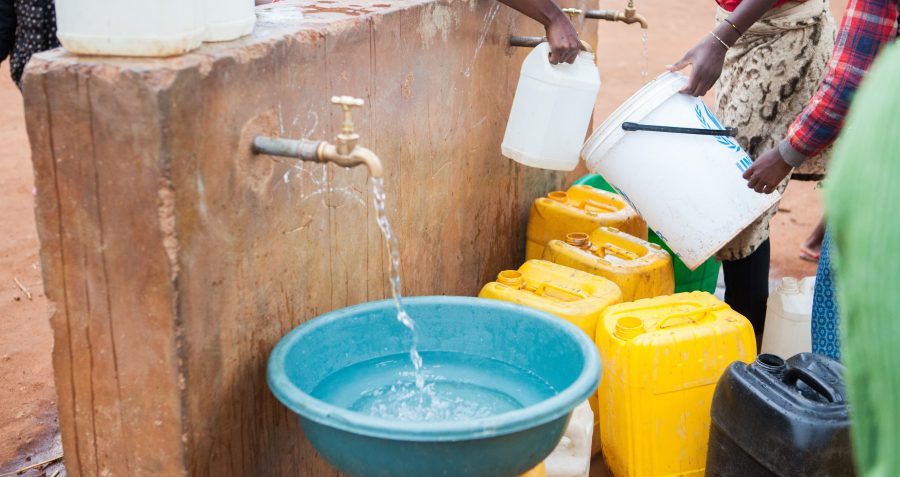Climate gender champions at water collection points

Key information
- Organisation: Zvandiri
- Countries: Zimbabwe
- Region: Eastern and Southern Africa
- Stage of innovation: Stage 3: Pilot
- Start date: 2022
- End date: 2023
- Type of innovation: New combination of existing services
- Funder: Swiss Agency for Development and Cooperation (SDC)
Summary of intervention
In Zimbabwe, Zvandiri is mainstreaming climate change into its HIV programming. Observations at water collection points have revealed that gender-based violence (GBV) is one of the impacts of climate change on girls and young women, particularly in drought-stricken areas. These are busy sites controlled by men, and in Muazarabani district Zvandiri staff have encountered concerning issues of GBV. Long queues mean that girls and young women often spend a lot of time waiting, giving men the opportunity to make sexual advances towards them and to delay them in the queue if they do not agree to their sexual demands. This not only prohibits equal access to water for girls, young women and their families but also has the potential to impact on their safety and sexual health.
In response, Zvandiri has placed staff and Zvandiri Community Adolescent Treatment Supporters (CATS) at water collection points to disseminate information about GBV prevention. They conduct awareness-raising sessions to encourage community members to protect young women while they wait to collect water.
learnings
Zvandiri learned that community understanding of GBV and its impact at the water points was very low, despite GBV being very common in marital/sexual relationships. Initially, community gatekeepers wondered how and why a person could be violated at a water point and did not see the value of GBV awareness-raising interventions at these sites. Young women’s voices were not being heard in the community. As the intervention was introduced, Zvandiri learnt the importance of engaging community gatekeepers and holding community meetings to ensure their buy-in and disseminate information on climate change and its impact on young women.
The gatekeepers took ownership, going on to lead further meetings to educate their communities, underlining the importance of community buy-in for any intervention to have an impact. Educating the community enabled them to own the challenges and be a part of ‘home-grown’ solutions.
next steps
Community members are scheduled to be trained as ‘Champions’ in saying “no to GBV” at the water points. This will enable them to disseminate information without Zvandiri staff directly on site and will further community ownership of efforts to prevent GBV at water collection points. CATS and Zvandiri staff will offer technical back stopping. Increasing community knowledge of GBV and its harmful impacts will hopefully extend beyond the water collection sites into the broader community.
Zvandiri will also integrate climate change and GBV into all its interventions and scale up to districts that have similar challenges to Muazarabani. This will require resource mobilisation to ensure adequate funding to support the other districts to effectively mainstream GBV and climate change in current HIV interventions.
Community involvement and ownership in the interventions, and ensuring community understanding of the issues will ensure sustainability.
sustainability
Increasing community knowledge of GBV and its harmful impacts will hopefully extend beyond water collection sites into the broader community. Community involvement and ownership in the interventions and ensuring community understanding of the issues will enable sustainability.

